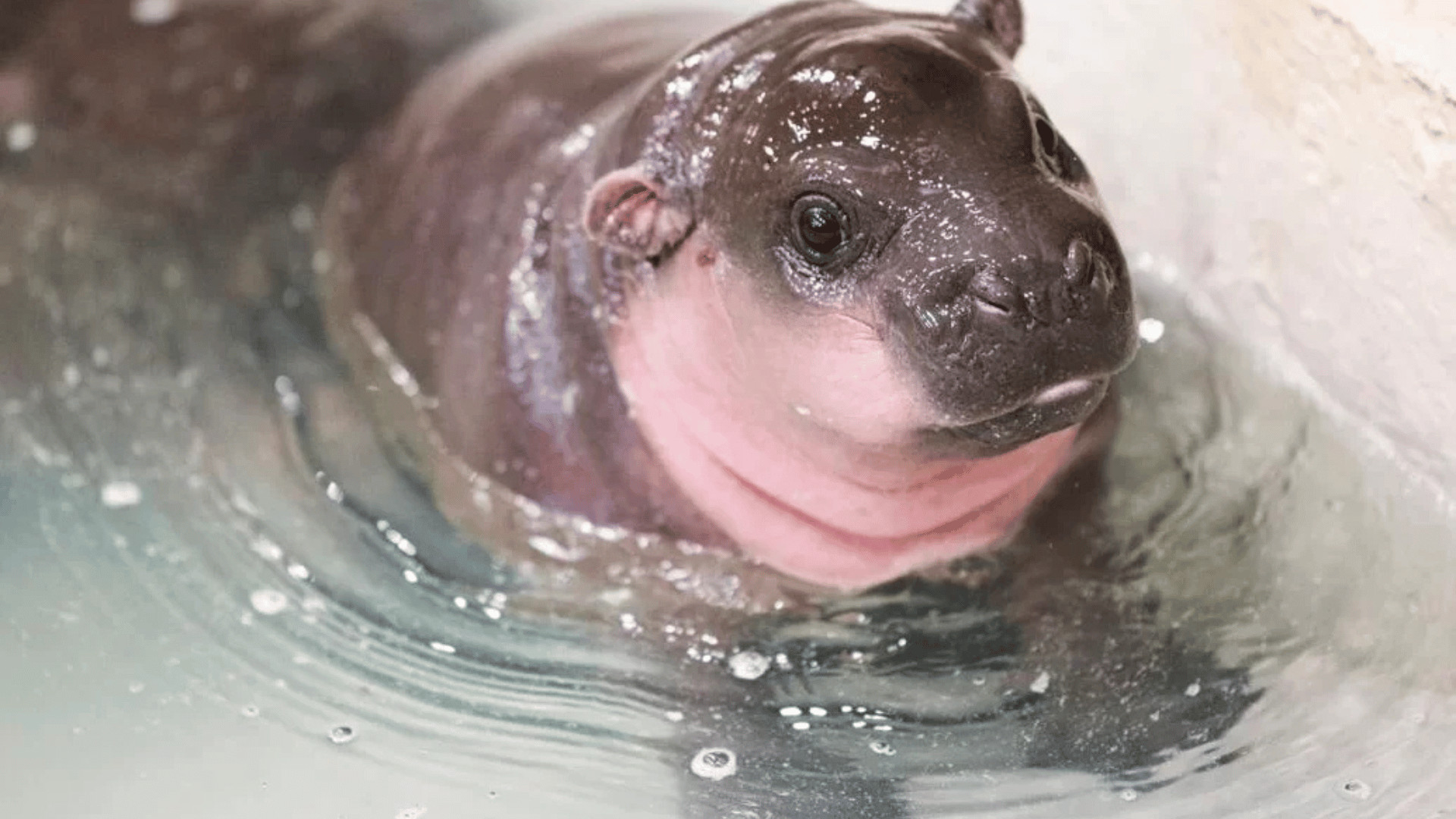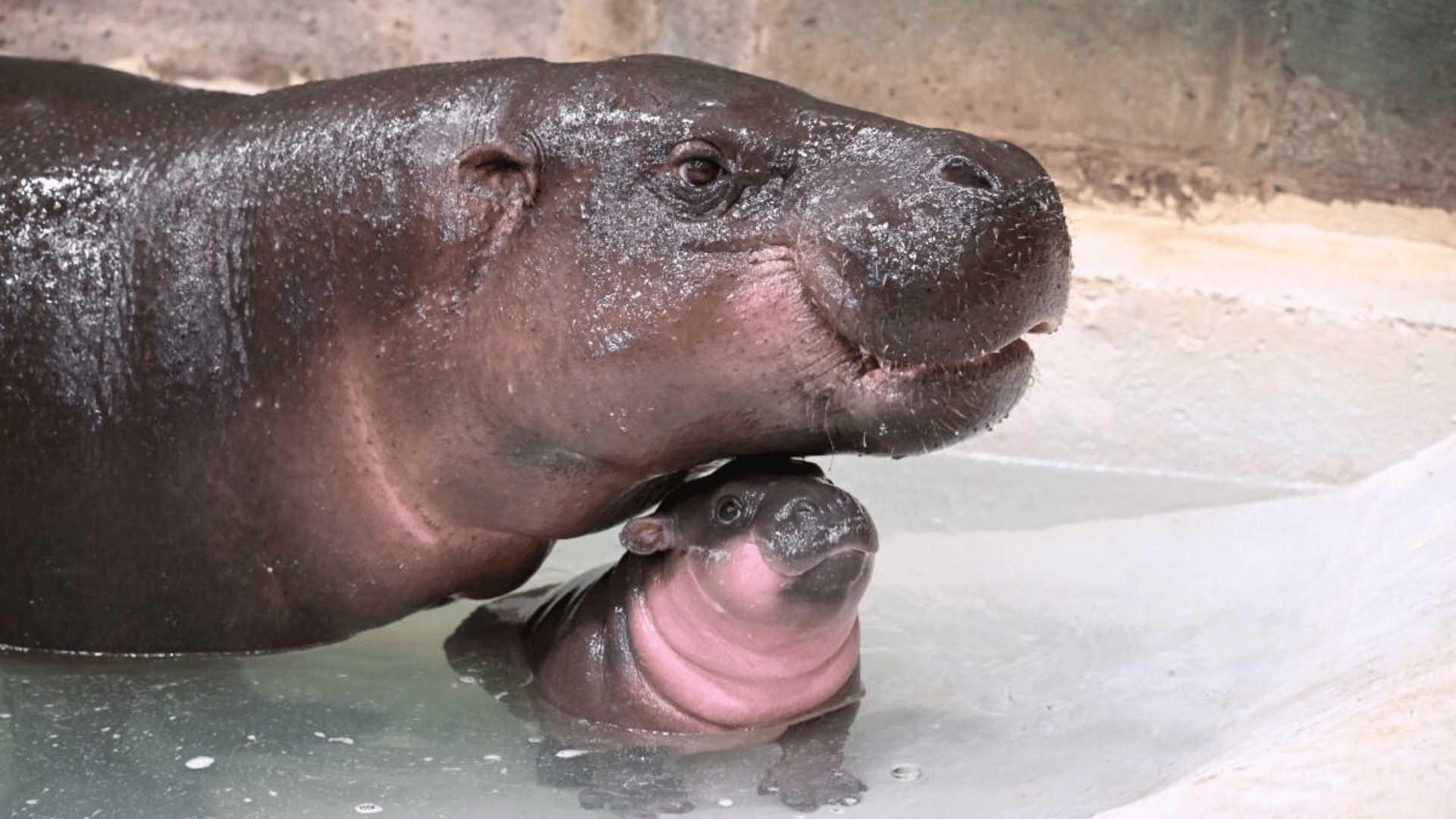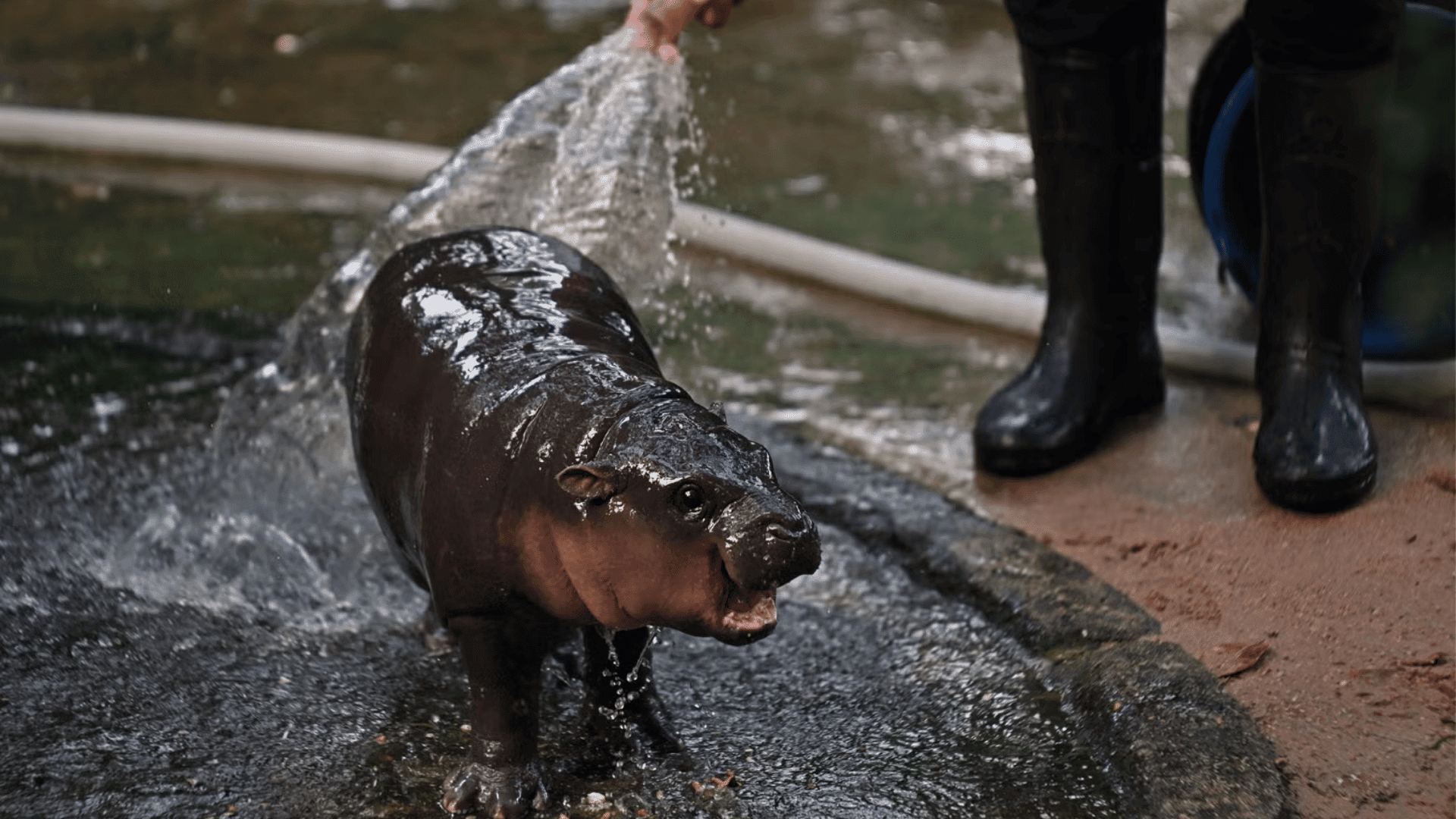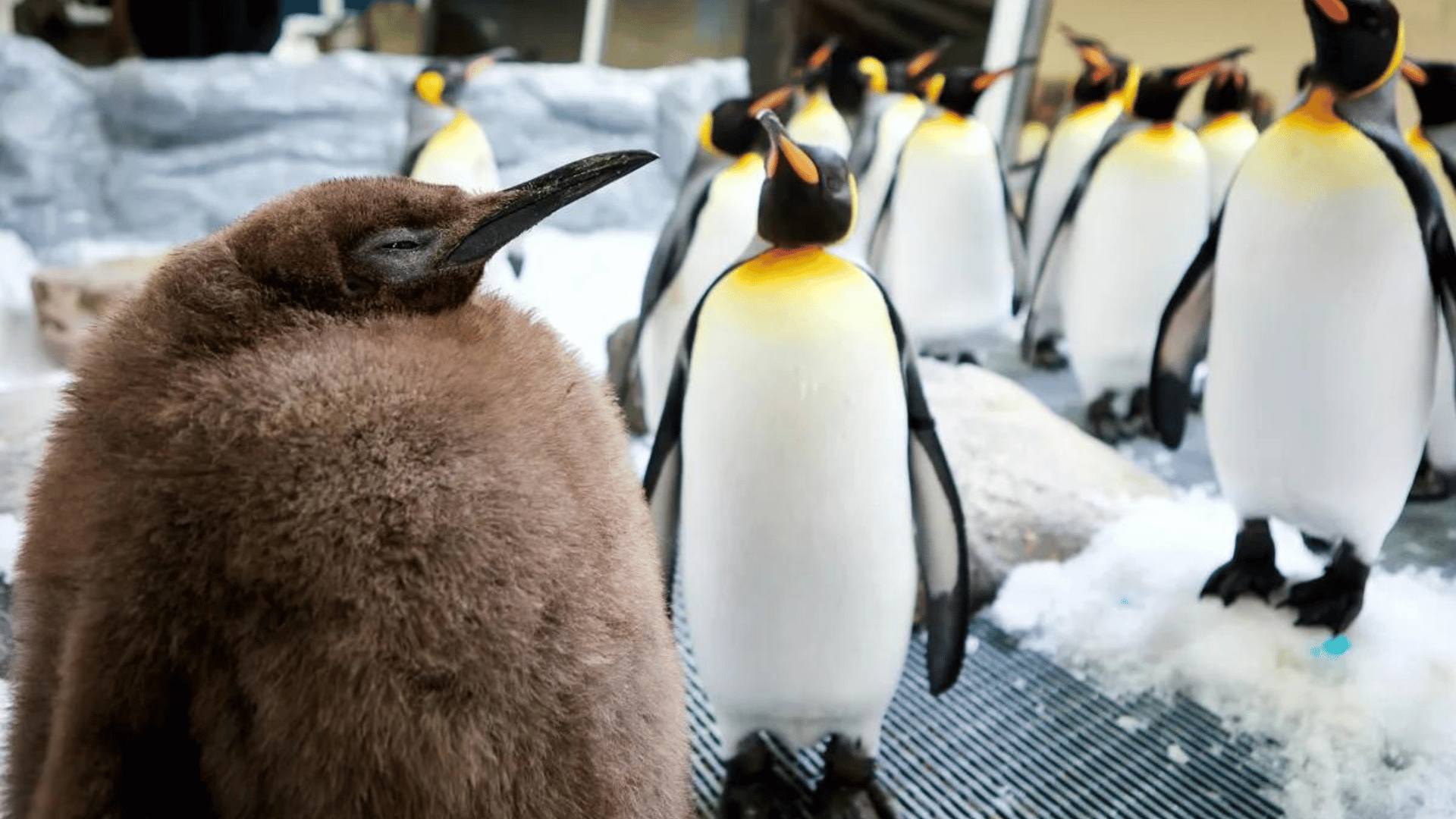After baby hippo mania swept the world following the birth of Moo Deng, US-based pygmy hippo enthusiasts can now journey to Metro Richmond Zoo in Mosely, Virginia, to meet the US’s newest pygmy hippo baby.

The 15-pound female baby pygmy hippo was born on December 9th, and her name was announced approximately one month later. This was after the zoo took a vote on the baby’s name, garnering over 116,000 votes from 165 different countries.
Once the votes were counted, the winning name, Poppy, was announced on the TODAY show. It received 52.8 percent of the vote.
Poppy was born to parents Iris and Corwan after a 7-month gestation period. Though this was Iris and Corwin’s third calf in 4.5 years, it was Iris’s first calf born underwater. This is notable as, though common hippos typically give birth underwater, pygmy hippos are either on land or in water.
“On the first day, we lowered the water level so the baby could become comfortable with her new surroundings. We have gradually increased the level each day,” the zoo wrote in a statement. “Like a human baby, our little hippo spends her days nursing, sleeping, and pooping, but with one glaring difference–she loves to swim!”

According to zoo officials who witnessed Poppy’s birth, the calf’s natural instincts immediately kicked in, and she started moving around in the water. Poppy also reportedly weighed 15 pounds at birth, whereas adult pygmy hippos can reach up to 600 pounds.
To put that into perspective, the World Wildlife Fund has stated that pygmy hippos are roughly 10 times smaller than standard-sized hippos. Though they grow to a fairly large size, pygmy hippos can run about 18 miles per hour on average, which is comparable to lizards and humans.
Pygmy hippos can only be spotted at a few zoos around the US, including ZooTampa in Florida and the Franklin Park Zoo in Boston, Massachusetts. Due to habitat loss, the pygmy hippo is considered an endangered species in the wild, with only an estimated 2,500 remaining.
“This birth–like all of Iris’ births–plays an important role in helping protect this rare and elusive species,” the zoo stated.







